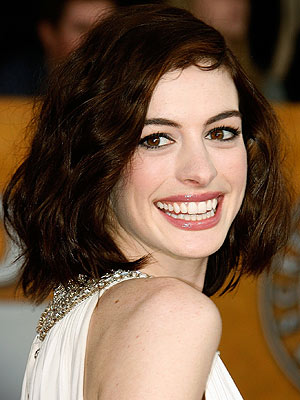Walking + Talking: One of the Best Films on Female Friendship Ever

When I saw Nicole Holofcener’s debut film, Walking and Talking, on a Thursday matinee in Cambridge, my best friend and I the only people the theater, I had no idea that I was staring into my future.
The film proved to be eerily prescient about my life. But I couldn’t know it at the time. I was 15 - things had barely begun. Boys were a concept and a source of bad poetry.
Films don’t usually dive into the ever-complicated, intricate, and intimate dynamics of friendship between women. (If they do, it’s often stories of Queen Bee toxic friendships, like Me Without You.) It’s not the most popular (or, generally, nuanced) topic; why write about best friends when you can write about a girl getting a man, and oh whoops, he’s a hit man? Or how men and women are from venus and mars and all that?
Deceptively simple, Walking and Talking centers around two friends, Amelia (Catherine Keener) and Laura (Anne Heche in her pre-Ellen, pre-Celestia ingenue years) who live young twentysomething lives in New York. Amelia has a vague newspaper-y job that involves classifieds, an ex that is always asking her for money (Liev Schrieber), whereas Laura has her Serious Relationship with fiancee Frank, the impending wedding, and her graduate work in psychology.
Amelia is unmoored, Laura is not. And that’s where the drama comes in.
Because if you’re the unmoored best friend, the undateable one, the one who’s floundering around on a life path through the brambles rather than walking down a straight clear line, then it’s very easy to relate to Keener’s character. She makes this sort of insecurity endearing; and it was always a shock to see her cast as a bitch in other, bigger movies, where she “broke through.”
There’s even a plot-line involving “the ugly guy” at the video store (and shame on you, internet, for killing the sort of retail places - video stores, record stores - where awkward crushes like this could exist. Shame on you!). Amelia’s lonely, renting videos all the time, and vulnerable - so she agrees to go on a date with the clerk that loves her and awkwardness ensues. Awkwardness that even involves lurking around the video store, hoping he’s there, and trying to apologize.
But all this dithering on Amelia’s part is due to one thing: she’s freaking out about her best friend’s marriage. She feels abandoned.
There’s a Young Adult book that I read, Up a Road Slowly by Irene Hunt [thx for the correction, Danielle!], that has a very applicable quote regarding this particular malaise. In short: there’s a young girl who’s an open wound since she lost her best friend, her sister, not to any tragedy, but to a husband and a baby. Her alcoholic uncle knows the sitch, and calls it like it is: a matter of numbers. Paraphrasing, it’s something like “You had a role in your sister’s life. You were probably the 3rd most important person in her life. But now there’s her husband, and now there’s the baby, and now you’re probably in 5th place."
And haven’t we all been there? When you’re a gang of two, and significant others come in the picture, it’s a painful process. You feel yourself getting knocked down in someone’s estimation. More importantly, it really isn’t you or anything you’ve done; it’s just that the relationship’s going to be different. 
I always thought of myself as ungirlfriendable Amelia, lurking around Newbury Comics stores and chatting up record store guys, with my best friend as the serial monogamist Laura (they also, her and Heche, share a similar chic Grace Kelly air), but as time marches on, the roles have shifted back and forth. Even if she is a doctor - who got married before 25 - and I am a writer. My date for her wedding was a guy that I met on the DC subway the month before.
The roots of our friendship are still there, late night phone calls, sleepovers, and adventures, even if the face of it is different these days.
When it comes to friendship, there are secrets that people don’t tell you. That friendship can be delicate; that friendship can be ephemeral; that there are phases to friendship that wax and wane like the moon. And despite all that, there are sharp, funny, and neurotic soulmates out there that you will value your whole life long.
I learned that from Walking and Talking. I saw a vision of women’s friendships that echoed my own. Caitlin and I were and are Laura and Amelia, and it’s a comfort to see those worries and trials onscreen.
And I will always go to Nicole Holofcener’s films in the theater, from the good (Lovely and Amazing, Please Give?) to the ideas in search of a film (the fascinatingly flawed Friends with Money). And she’s my number one pick for a director that should be making a small Woody Allen-ish film a year.
But perhaps the most important takeaway from Walking and Talking is this - there are some life long friends who let you play "vagina music” for the whole duration of a roadtrip. And those friends? May be the most important, the most necessary people that you’ll ever have in your life.
Shearwater: a band both beautiful and silly. I really like this song - even if Will Sheff’s voice is very warbly in it - because the lyrics are absolutely perfect, a great short story that you can fall into. Writing you can learn from.
The other thing I like about Shearwater is that a lot of their songs are about birds.
One week, Ace Hotel Palm Springs, you and I have a date. (via acehotel)
Natasha VC: Big dumb face →
Hey guys. I just wanted to share an AH-HAH observation I had about FAMOUS PEOPLE. Famous people in movies, that is. I have interviewed some of these people and the thing that usually strikes me about them is how big their faces are. You don’t see this as much in theater folk or the muscian kind…
EXHIBIT A (and part of the reason she works so well in her Oscar-nominated role…):
Noah Britton sings “Still Love You Anyway” at a nursing home. This video is beautiful and touching.
Miss U, New England coastline. Wish I was there right now working some terrifically quaint job like owning the local independent bookstore and trying, gamely, to participate in conversations about the Red Sox even though I will never, ever care because Baseball is a stupid and boring sport and tells you jack about America, literary writer-types!
A relaxing moment with Billy Wilder (hero).
Fun IMDB fact: An inveterate clotheshorse, at age 83 he still owned over 60 cashmere sweaters. He also dated Hedy Lamarr. Schwing!
Be Your Own Pet sounding a little Sleater-Kinney(ish!), imho.
On Breaking Bad

I just finished Season 2 of Breaking Bad. I think the show is wonderful. And one thing I like in particular is its satisfactory plotting. (Because when it comes to Matt Weiner, I don’t get that feeling at all…) Even when it’s an episode about Walt and a water-pump, it ends with a crushing moment. There’s something creepy, real, and awfully unsettling about the show. And the cinematography is so gorgeous. (The episode with the junkies and the little boy is one of the most excruciating hours of TV. Remember, if you haven’t watched Breaking Bad before: don’t do it before bed. You will thank me.)
1) Thank god for Bryan Cranston’s wrinkled, unbotox-ed face. Can you imagine what the show would be like if he couldn’t emote with the worried folds of his skin? Thank goodness he was a journeyman TV actor that got a shot and not a fading movie star. If he was the latter, or the role was for a lady, I’m afraid that the complexities would be lost in the Botox.
1A) Cranston’s awesome, isn’t he? I love that guy.
2) The show sticks with you in awful ways. Last Sunday my SO and I were driving to a waterfall and we got lost. He ends up pulling over in front of this motel with some big bros sitting on the front porch. He’s looking at a map, trying to figure out where we went wrong, and this wiry tattooed dude in no shirt and jeans starts stalking down the front walk towards our car. I tell Stu to go and we speed away. It just didn’t seem like a good scene - and I thought that maybe he could’ve been trying to be a good neighbor, or whatnot, but I feared the worst, and for that, I blame Walter White.
It’d be nice to be here right now.
Spring!
Eleni Mandell, “Artificial Fire”
Movies I can't afford to see

Thanks to having to pay taxes on a really terrible HR department’s screaming ineptitude, after barely making a living wage:
LITTLE FOCKERS (in 3-D, I bet).
No more De Niro films in the theater ever again!
The Draper/McNulty/White Conundrum
The elements of your personality that make you good at your job make you bad at everything else.
This is the character thesis of all the leading men. I’m a sucker for it.
That’s there for sure, but isn’t it also sort of, like, how modern existence makes the ultimate modern man a sociopath?
Every compelling cable show of the past ten years has pretty much been a study on the sociopathy of the modern man, and all the other stuff, from meth to serial killing to mobbin’ to advertising, has been interchangeable symbols and metaphors.
A gorgeous recent sunset, where the clouds came together over the Catskills like a zipper, sunlight spilling through.









